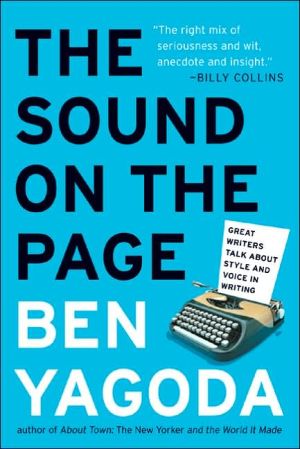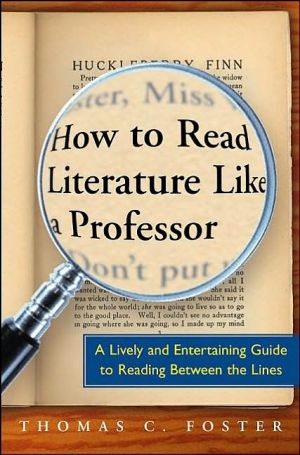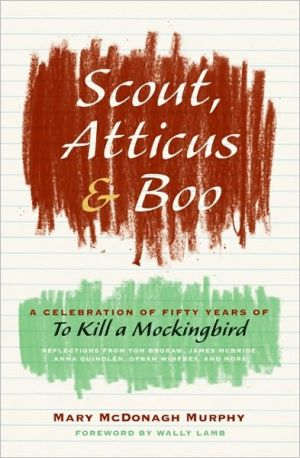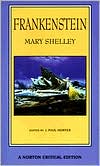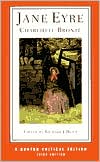Sound on the Page: Style and Voice in Writing
In writing, style matters. Our favorite writers often entertain, move, and inspire us less by what they say than by how they say it. In The Sound on the Page, acclaimed author, teacher, and critic Ben Yagoda offers practical and incisive help for writers on developing and discovering their own style and voice. This wonderfully rich and readable book features interviews with more than 40 of our most important authors discussing their literary style, including:\ Dave Barry Harold Bloom Supreme...
Search in google:
In writing, style matters. Our favorite writers often entertain, move, and inspire us less by what they say than by how they say it. In The Sound on the Page, acclaimed author, teacher, and critic Ben Yagoda offers practical and incisive help for writers on developing and discovering their own style and voice. This wonderfully rich and readable book features interviews with more than 40 of our most important authors discussing their literary style, including:Dave Barry Harold Bloom Supreme Court Justice Stephen Breyer Bill Bryson Michael Chabon Andrei Codrescu Junot Díaz Adam Gopnik Jamaica Kincaid Michael Kinsley Elmore Leonard Elizabeth McCracken Susan Orlean Cynthia Ozick Anna Quindlen Jonathan Raban David Thomson Tobias WolffThe New York Times - Richard EderWhat is fresh and engaging is the struggle. Like Fabrice in The Charterhouse of Parma, the author makes his way through the Battle of Waterloo its literary equivalent, that is and comes away not with grand strategies, though in his case he attempts them, but with the enduring life of particular and obstinately colliding details.
The Sound on the Page\ Style and Voice in Writing \ \ By Yagoda, Ben \ HarperResource\ ISBN: 0066214173 \ \ \ Chapter One\ The History of an Idea\ We can turn to etymology to understand the origin of the meaning of style -- but only at the risk of being seriously misled. The English word style is derived from the Latin stilus, meaning a pointed instrument for writing. It later came to refer to what was done with the instrument -- that is, the way words are arranged. Here's the misleading part: the concept of style was invented by the Greeks (they called it lexis), and they would never have named it after a writing tool. All ancient notions about putting words together assumed that the primary means of communicating them was speech. Sometimes the words were written down, to aid memory or ensure future availability, but the ultimate means of delivery was oration, not publication. Thus style for both the Greeks and the Romans was a branch of the art of oratory.\ The founder of that art is traditionally considered to be Gorgias, a native of Sicily who became ambassador to Athens in the fifth century BCE and who was known for his elaborate figures of speech and hypnotic cadences. He was associated with the school of the Sophists. The name only later picked up the negative connotations by which we now know it, but even at the time, Gorgias's emphasis on eloquence and persuasiveness, allegedly at the expense of truth, brought him criticism from the philosopher Isocrates, who advocated the study of "eloquent wisdom," rather than rhetoric, and especially from Socrates and his disciple, Plato. In the dialogues Gorgias and Phaedrus, Plato set up a distinction between truth (the ultimate value) and verbal skill (which will tend to obscure truth). In The Republic, Plato shows Socrates denigrating the very practice of writing; words that are written in stone, figuratively or literally, can manipulate emotions and ideas with near impunity, because they cannot be challenged, and actually obscure or block the path of truth.\ These debates took place well over 2,000 years ago, but they have been replayed ever since. On the one side are Socrates and Plato and their heirs, who mistrust language from the start because of the irresponsible way it verges from reality. Words are a necessary evil, they acknowledge -- how else could we communicate? -- but have to be used cautiously. This camp conceives of the truth as a series of invisible beings who walk through our world; the aim of speaking or writing is to dress these forms with perfectly fitting garments that allow us to see them for the first time. A flamboyant epaulet or a colorful sash would be extraneous, unseemly, and maybe even immoral.\ On the other side is the school of Gorgias, which has been less militant and organized and has made its case more by example than by pronouncement. A pillar of its position is that the arrangement of words -- that is, style -- can be an agent not only of persuasion but of beauty and expression as well. And truth, this side implies and sometimes states, is not as simple a matter as Plato would have you believe. Instead of imagining language and reality as separate entities, they ask us to consider the possibility that neither one can exist without the other.\ As was often the case, it fell to Plato's student Aristotle to mediate between the two positions. He devoted an entire treatise, On Rhetoric, to the subject of eloquence and persuasion; one of its three books concerned itself with style. Aristotle defended rhetoric as not merely a series of ornaments or tricks but instead as an essential part of argument, investigation, and communication. At the same time, his view of style was conservative, emphasizing clarity, transparency, and decorum. Indeed, some of the precepts in On Rhetoric could have come straight from Strunk and White:\ \ Style to be good must be clear ... Clearness is secured by using the words (nouns and verbs alike) that are current and ordinary ...\ A writer must disguise his art and give the impression of speaking naturally and not artificially. Naturalness is persuasive, artificiality is the contrary; for our hearers are prejudiced and think we have some design against them, as if we were mixing their wines for them ...\ Strange words, compound words, and invented words must be used sparingly and on few occasions ...\ A good writer can produce a style that is distinguished without being obtrusive, and is at the same time clear.\ \ Cicero, a Roman and the greatest ancient commentator on rhetoric and style, swung the pendulum back the other way. He claimed that Socrates "separated the science of wise thinking from that of eloquent thinking, though in reality they are closely linked together." Going further, Cicero called for a union of res (thought) and verba (words); one cannot speak of expressing the same thought in different words, he said, because in that case the thought would be different. Language and style are therefore not a utilitarian vehicle with which to deliver truth or meaning but an essential and organic part of both. And consequently, rhetoric is the ultimate art: "the consummate orator possesses all the knowledge of the philosophers, but the range of philosophers does not necessarily include eloquence; and although they look down on it, it cannot but be deemed to add a crowning embellishment to their art."\ In addition to defending rhetoric, Cicero codified the discipline. He wrote that the orator "must first hit upon what to say; then manage and marshal his discoveries, not merely in orderly fashion, but with a discriminating eye for the exact weight ... of each argument; next go on to array them in the adornments of style; after that keep them guarded in his memory; and in the end deliver them with effect and charm." And thus he laid out the five faculties of classical rhetoric: invention, arrangement or structure, style, memory, and delivery ...\ Continues... \ \ \ \ Excerpted from The Sound on the Page by Yagoda, Ben Excerpted by permission.\ All rights reserved. No part of this excerpt may be reproduced or reprinted without permission in writing from the publisher.\ Excerpts are provided by Dial-A-Book Inc. solely for the personal use of visitors to this web site. \ \
Introduction: The ArgumentxiPart IStyle from the Outside: TheoryChapter IThe History of an Idea3Interlude--Quotes on Style22Chapter IIWriting, Speech, and the Middle Style26Interlude--"Looking for a Click in My Head": Music and Style43Chapter IIIA Field Guide to Styles46Interlude--Engendering Style72Chapter IV"Style Is the Man Himself": Style and Personality77Part IIStyle from the Inside: PracticeChapter VFinding a Voice, Finding a Style105Interlude--Progress in Works124Chapter VIWhat Writers Talk About When They Talk About Style130Interlude--Blindfold Test150Chapter VIIConsistency and Change156Chapter VIIIStyle According to Form166Chapter IXBy Way of Advice224Appendix243Interviewees243Credits and Permissions251Acknowledgments253Index255
\ Ann Beattie“...offers not only the author’s amazingly informative narrative, but points us toward...the trial and error inherent in creativity.”\ \ \ \ \ Ron Rosenbaum“[Ben Yagoda] is witty and offhandedly erudite and unafraid to read between the lines...”\ \ \ Mark Bowden“This is an ingenious and memorable exploration of writing’s soul...”\ \ \ \ \ Wall Street Journal“Ben Yagoda [is] the best kind of close reader, attentive to writerly choices that most of us take for granted.”\ \ \ \ \ Philadelphia Inquirer“A shrewd, welcome meditation on literary style… that rarest of tomes: a splendidly written book about writing.”\ \ \ \ \ Chicago Tribune“A stylish exploration of developing a distinctive voice and writing style.”\ \ \ \ \ Billy Collins“...the right mix of seriousness and wit, anecdote and insight.”\ \ \ \ \ Chicago Tribune“A stylish exploration of developing a distinctive voice and writing style.”\ \ \ \ \ Philadelphia Inquirer“A shrewd, welcome meditation on literary style… that rarest of tomes: a splendidly written book about writing.”\ \ \ \ \ Wall Street Journal“Ben Yagoda [is] the best kind of close reader, attentive to writerly choices that most of us take for granted.”\ \ \ \ \ Richard EderWhat is fresh and engaging is the struggle. Like Fabrice in The Charterhouse of Parma, the author makes his way through the Battle of Waterloo — its literary equivalent, that is — and comes away not with grand strategies, though in his case he attempts them, but with the enduring life of particular and obstinately colliding details.\ — The New York Times\ \ \ \ \ Library JournalIn this fascinating study, author, columnist, and English professor Yagoda (Will Rogers; About Town) examines style-that elusive but all-important element of excellence in writing. Or is it? To answer that question, Yagoda asks the following: How is it that we recognize an author? And how does any author develop his or her singular voice? While Yagoda does not go so far as to suggest abandoning William Strunk and E.B. White's classic The Elements of Style as a guide to proper grammar and style, he does suggest that taking the personal element out of literary writing is next to impossible and that individual style is the defining ingredient of outstanding literature. Yagoda further analyzes the paradox of subvocalization, the illusion of transparency, and the existence of gender differences. But the real jewels of the book are the interviews from outstanding voices of our time, such as Dave Barry (Pulitzer Prize for Commentary, 1986), Andrei Codrescu (NPR's All Things Considered), Anna Quindlen (Pulitzer Prize for Commentary, 1992), and award-winning novelist John Updike. Overall, this entertaining and instructive book should be part of any writing collection.-Ann Schade, Powers Memorial Lib., Palmyra, WI Copyright 2004 Reed Business Information.\ \
